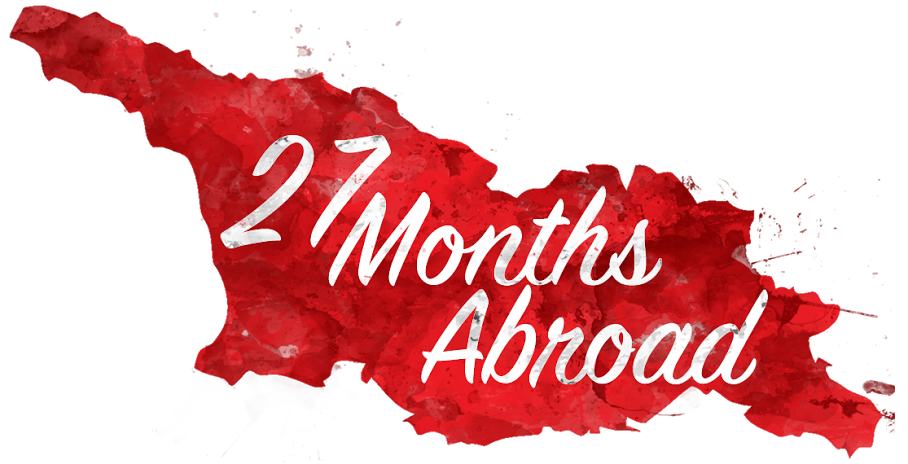Mini METS are our one-day STEM workshops conducted at various Peace Corps Volunteers’ sites.
When BJ, Amanda, and I created the METS Initiative in 2016, BJ had suggested that it should be more than just a camp. There should be another component of the initiative: Mini-METS. Amanda and I wholeheartedly agreed. Mini-METS are one-day “camps” that would be hosted in various Peace Corps Volunteers’ sites upon request. As you may know, METS is our STEM initiative. It is STEM spelled backward and it also means “Me too” in Georgian.
Even though Georgia has made efforts to increase science education, it is still not a popular major to study in university. Not only that, many of its scientific facilities are outdated. This is one of the reasons why the Millennium Challenge Corporation (MCC) invests in Georgia. In fact, MCC is the one that awarded San Diego State University the $30 million grant to partner with Georgia to have an American Accredited University in Tbilisi. As you may recall from my previous blog post about METS, Georgian San Diego State Universities acted as our counselors in our camps.
As this article in the Daily Aztec mentions, the money from the grant “will be allocated toward renovating labs and improving the quality of higher education.” Also, the article mentioned that “MCC wanted an American accredited U.S. degree to be offered in Georgia because Georgia needed higher education to meet the standards of emerging democracies.” This is one of the many reasons why the whole METS initiative started. This is why we feel that we need to continue our work in METS beyond just our summer camps.

This past Saturday, on October 28th, 2017, Atka, Rose, and I hosted the second Mini-METS in a local town in the Imereti Region at our friend Ryan’s site. The first one was conducted in the spring by BJ and Amanda. On Saturday, we had nearly twenty youth show up to the event. We conducted three activities for Mini-METS: 1) rockets 2) math tricks and lastly 3) lungs. With each presentation, we discussed the theory first and then did the experiment. It is important for students to understand the science behind the experiment. I don’t want them walking away thinking it was “magic.”

So for the rockets, Atka explained what were reactants and catalysts. She taught them how all the materials interact with each other to create a mini “rocket.” Curious to what our rockets actually were? Simple. They were Alka Seltzer tablets, water, and a film tube canister. No, seriously that is it. You put half an Alka Seltzer tablet in a small film canister with warm water. Close the lid. Place the canister upside down and wait for it to launch!
What was surprising was some kids left immediately after this experiment. It was a bit shocking because this experiment is a huge hit and every student loved it! They were all jumping in glee and we had to do some crowd control. It is just difficult to compete for their attention- on the weekend- especially when they have Facebook waiting for them at home.
Then, I did a math presentation. I know, it sounds like a snooze. What kid would want to learn math on a Saturday? Ryan was hesitant to have this when I told him that it was part of our agenda. I can’t blame him. I thought it was going to be boring when I introduced it at the Kobuleti camp. However, it was such a hit. The kids in Kobuleti were literally jumping out of their seats to participate.
So, I tested my luck for the second time to do it at Mini-METS. Guess what? Another hit. I taught them how to divide big numbers by five – in seconds and in our heads! Spoiler alert: you double it and then divide it by then. I decided to do a simple math trick because many of the students in the audience were in the sixth grade.
Lastly, Rose did our lung presentation. She explained how lungs work and what can cause inflammation. One way to stop inflammation of the lungs is smoking. Thus, it was basically a mini-anti-smoking campaign. How best to illustrate how bad smoking is? Do an experiment where you can literally see the damage after a few minutes.

Our lung model is basically built from plastic bottles, balloons, and cotton. The device is the one actually smoking the cigarettes. Even after even a few cigarettes, the cotton inside the plastic bottle changes color to a more yellowish-brown. Thus, this indicates that lung damage from smoking is almost immediate. It is a great way to show kids immediately how smoking damages the lungs. I want to say this experiment is completely harm-free, but I cannot. We did incur a bit of second-hand smoke during this process.

A lot of the kids enjoyed this too. I’m not sure how many of them will not pick up the habit of smoking though. Smoking in Georgia is a big problem. The majority of males in this country smoke. It is not very “lady-like” for women to smoke, therefore, the problem is mostly with men. Regardless, we hope that we were able to impart some knowledge on these youth.
Overall, Mini-METS was a success. It is really fun seeing kids get excited about science and math. It made it worth it to wake up early that Saturday morning!
